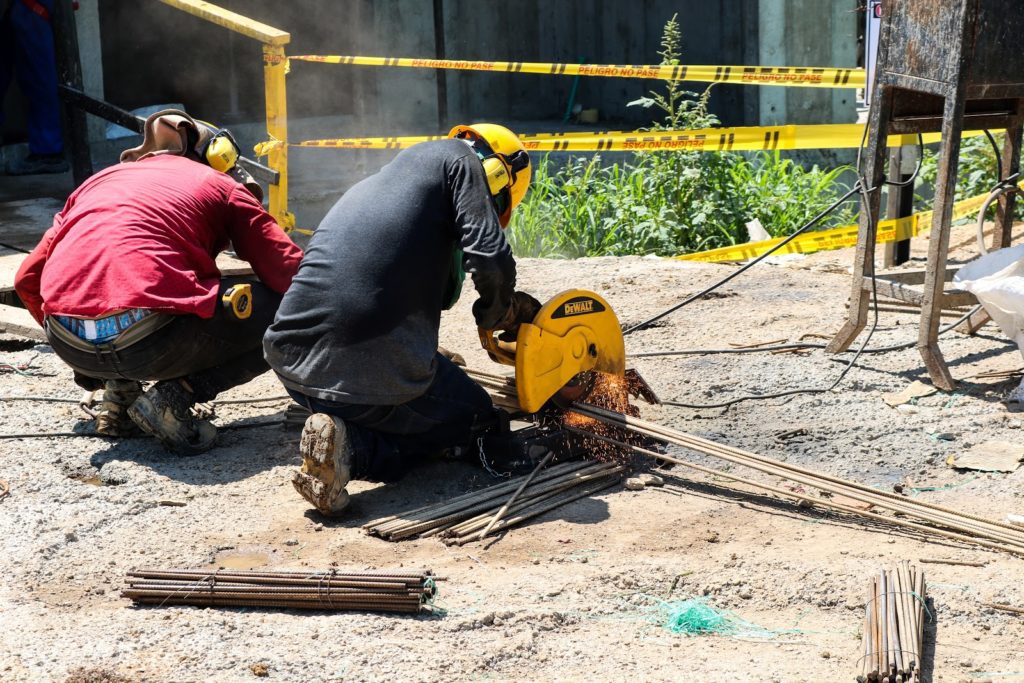
Licensed contractors — including electrical, plumbing, and other types of specialty contractors — can get contractor bonds to protect and inform their work across different projects. Surety bonds are different from general liability insurance, which primarily protects the contractor. Bonds are meant to protect the project, the contractor, and the individual or entity who contracted the project. There are different types of bonds that are designed to protect and inform different aspects of different kinds of projects. Contractor bonds help protect all those involved from unintentional damage to physical property or equipment, as well as to help ensure satisfactory project completion.
What Does a Contractor Bond Do?
A contractor bond is generally a project-by-project agreement between the contractor, called the principal, the business or individual who has hired the contractor, called “the obligee,” and a guarantor, who issues the bond. Contractor bonds are different from contractor liability insurance, as they are not only designed to protect against damages, but they outline how the work will be carried out.
It may be helpful to think of a contractor bond as part insurance and part contract. When you sign a bond as a contractor, you’re not only agreeing that you’ll finish the project in a timely manner, you’re also agreeing to work within certain guidelines set by the obligee. This can include:
- Working during certain hours;
- Using specific materials;
- Adhering to outlined storage and workspaces;
- Following outlined waste disposal practices.
Surety Bonds vs License Bonds
While there are a few different types of bonds — including bid bonds (which guarantee an agreed-upon price for a project) and performance bonds (which guarantee project quality and completion) — surety and license bonds are two of the most common you’ll see when entering the world of contractor bonds.
Contractor Surety Bonds
Contractor surety bonds tend to be more interchangeable with the blanket phrase of contractor bonds, as they ensure the project or service will be performed and completed per the stipulations in the bond. Surety bonds can also reimburse the obligee for damages incurred during the project. It’s important to note that under a surety bond, the guarantor will pay the obligee if a file is claimed, but the principal, or the contractor, is expected to reimburse the guarantor for any payouts made.
Contractor License Bonds
Contractor license bonds are a little bit different than surety bonds. Firstly, license bonds are not issued project-by-project, and you may be required to get one by your state licensing board before you can practice as a contractor. License bonds not only protect the principal, obligee, and guarantor, but also the state licensing board. License bonds are also more concerned with the ethical choices and professionalism of contractors’ actions while working on a contract. This can apply to a host of things such as:
- Improper waste disposal;
- Disruption or displacement of wildlife;
- Incorrect use of materials;
- Unprofessional interpersonal conduct.
If any of the bond parties feel negatively affected by an unethical or unprofessional decision made on the job, they can file a claim against the bond.
Who Should Get a Contractor Bond?
Any aspiring or active contractor should review state and local laws to determine if a license or surety bond is required before bidding on a project. Additionally, many clients — especially federal and some state or local government entities — may require all contractors to be bonded before they will accept bids on a project. It is important for any construction company or general contractor to review applicable laws, and understand prospective clients, to determine when a bond is required. Additionally, it may be a worthwhile investment to secure a bond even if it is not strictly required.
While contractor bonds are viewed as primarily customer protection, they can actually be incredibly helpful to the contractor as well. Getting a contractor bond can give you the tools you need to resolve stalled or unethical work. Being a bonded and insured contractor is a great way to keep yourself, your projects, and your clients protected while on the job. In order to become a contractor in some places, you may be required to get a license bond. This is to protect obligees against non-regulatory work, as well as establish consistency of contract work across all licensed contractors in the state.
How Do You Get a Contractor Bond?
If you’re interested in getting a contractor bond, you can reach out to your current business insurance company to see if they offer contractor bonds, and what types may be available to you. If your insurance company doesn’t offer the type of bond you’re interested in, you can always reach out to a private contractor bond company, or contact your state licensing board. The process of becoming a bonded and insured contractor may differ depending on which state you’re licensed in and which field you work in.
Bond Pricing
When purchasing a bond for a project or license, the price can depend on a few factors:
- The type of bond;
- The state you’re purchasing the bond in;
- The company you’re purchasing the bond from;
- The project you’re purchasing the bond for.
Generally, contractor surety bonds are priced based on the price of the project you’re purchasing them for. This ensures that should the obligee file a claim, they will be able to be appropriately reimbursed. The cost of your license bond will vary based on your state and your field of work. Alternatively, you may be charged a yearly premium on your license bond to maintain it.
